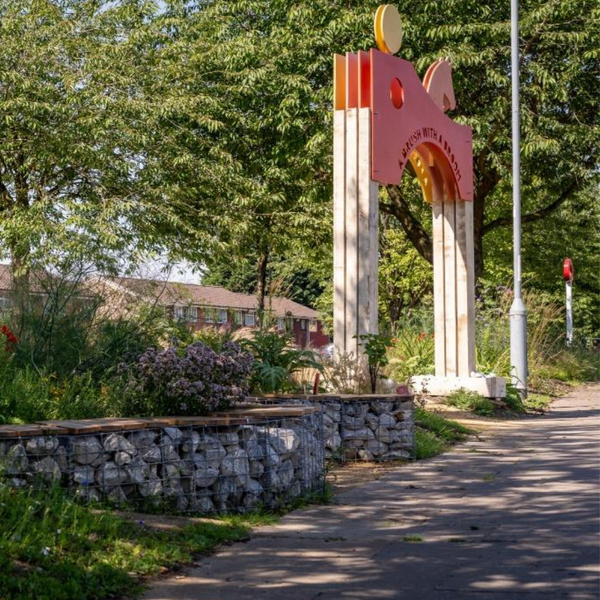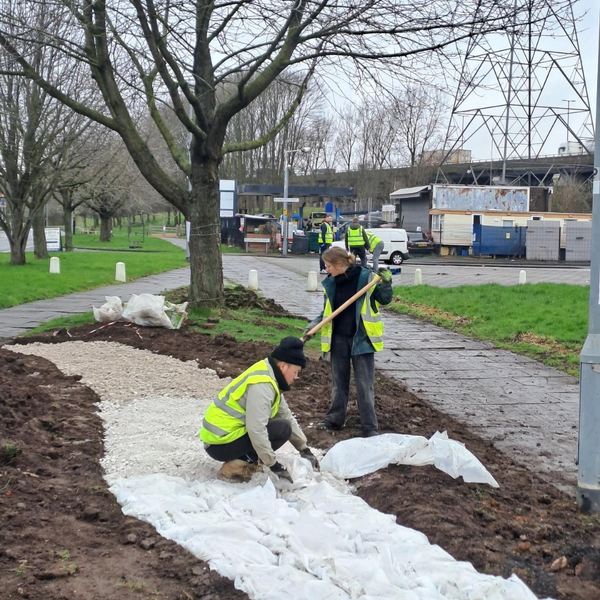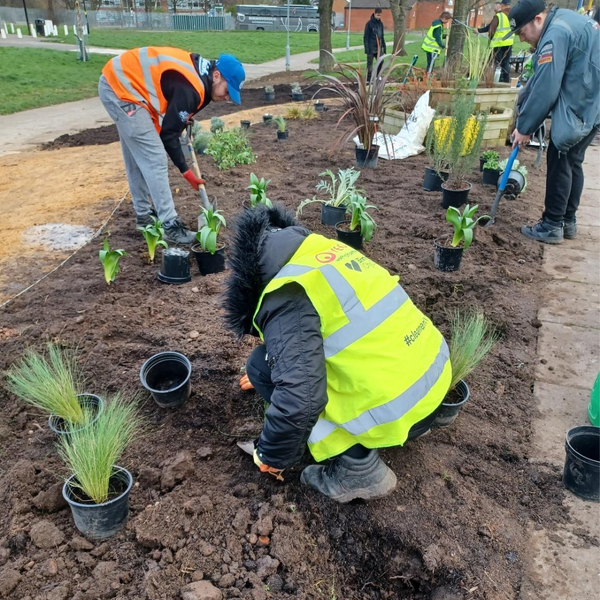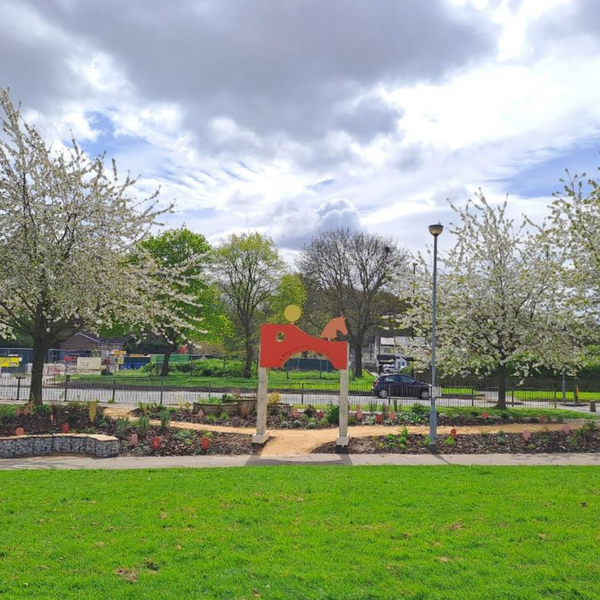Project showcase
Firs & Bromford Pocket Park, Birmingham for Open Door Community Foundation and Birmingham City Council with National Trust, Intervention Architecture, and the UK Government’s Shared Prosperity Fund
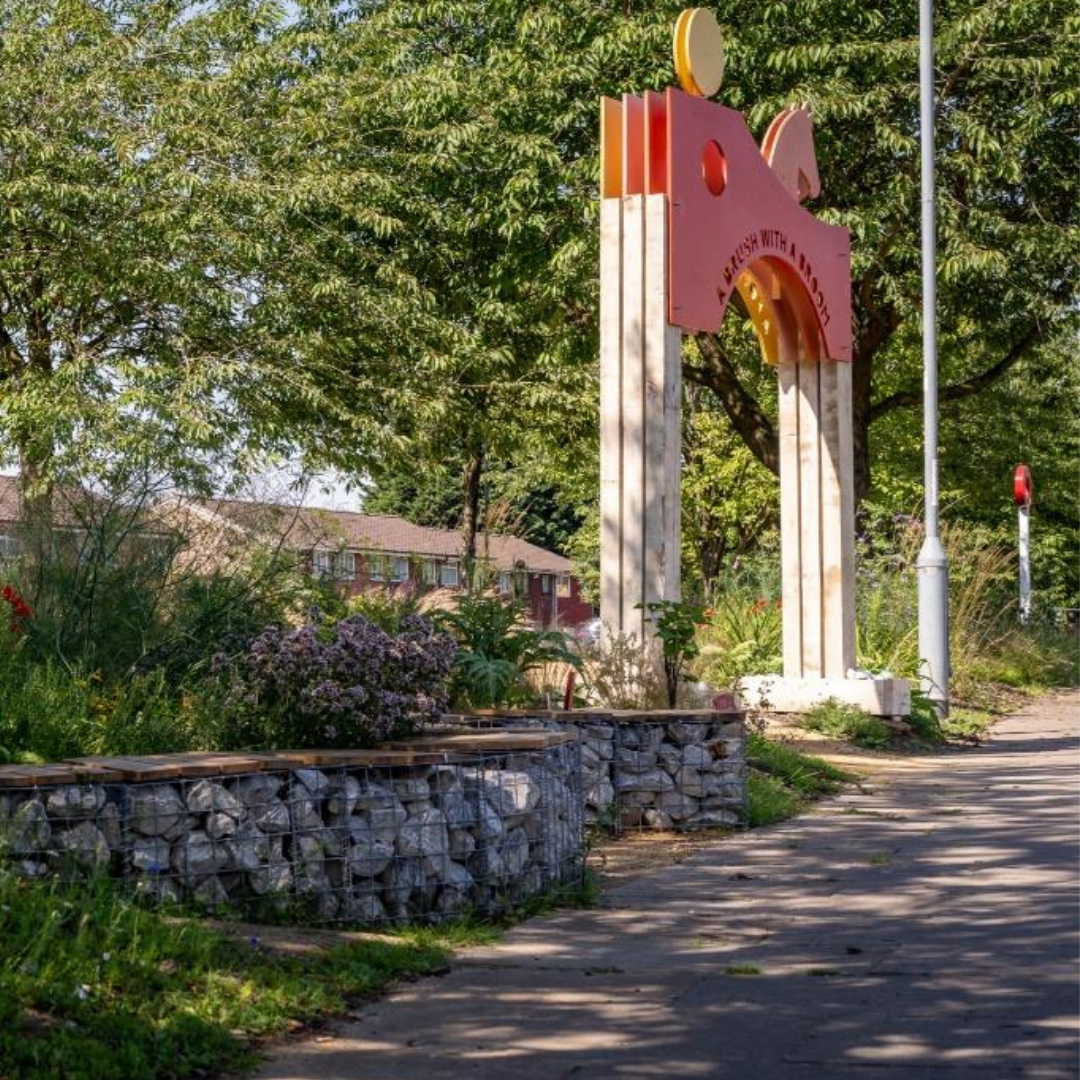
Over several weeks and eight build days, community members helped bring their pocket park vision to life. The programme, aligned with community hub hours, offered activities for all, including painting, soil preparation, path and bench building, sign drawing, planting, and sowing wildflower seeds. The initiative fostered local engagement while delivering benefits that extend beyond the immediate area, creating a vibrant and inclusive space for the community.
Who is on the project team? (designer, consultants, etc)
Co-design & cobuild lead - Intervention Architecture
Delivery and client - National Trust
Client and clerk of works - Birmingham City Council
Structural engineers - Webb Yates
Describe the context of the community engagement. Why did the engagement take place?
This project took place in Firs & Bromford, a neighbourhood comprising two estates in East Birmingham. The area scores poorly on Birmingham’s Environmental Justice Index, meaning residents have limited access to green space, are disproportionately affected by climate change, and face higher levels of deprivation and health inequalities. Engagement highlighted these challenges through feedback about lost public green spaces and a lack of private or shared gardens. The project aimed to address these challenges by improving access to nature, cultivating an interest in growing, and fostering a sense of ownership over green spaces. In partnership with the National Trust, Birmingham City Council, and the grassroots organisation Open Door Community Foundation, the project sought to transform an underutilised patch of grass alongside a busy bus route into a vibrant pocket park.
Who did you engage with and how?
For the co-design process, Intervention Architecture held day and evening workshops aligned with Open Door’s existing rich timetable, including youth sessions, men’s and parents’ groups, alongside planned weekend drop-in sessions, as well as an online questionnaire to ensure as many voices were captured. Over 30 participants shaped the park’s design in a welcoming environment, where English was sometimes not the first language. Activities included planting broom bush seeds (honouring Bromford’s name), storytelling and drawing to capture the area’s rich horse-racing history, and collaging RHS magazines to inspire ideas for the space. The community expressed a desire for a patchwork of edible and beautiful plants, signs celebrating individuals and local heritage, and spaces for groups to dwell. This shared vision brought together different generations, ages, nationalities, and skills. Over several weeks and eight build days, the community members were invited to make their pocket park vision a reality. The park build programme which included weekends, coincided with the community hub opening times and provided something for everyone – painting, preparing the soil, building paths & benches, drawing signs, planting plants and sowing wild-flower meadow seeds, guided with best practice throughout by award-winning horticulturalists, garden designers and National Trust head Gardener fostering confidence and skill sharing. Over 40 volunteers, ranging from residents of all ages to students from a local SEND college and university helped to build the park, and saw their beautiful ideas blooming into reality in a matter of months.
Have you continued the conversation? Will the community stay involved?
The project has firmly embedded ongoing community involvement. There are frequent gardening sessions, social events, and educational workshops, ensuring the park remains a vibrant, well-loved space. The project team is often invited back for significant occasions, and pride in the park is evident both on-site and online through the community Facebook page. A maintenance grant provided through the project’s funding supports Open Door in the park’s upkeep and stewardship. Preparing the soil and working with the site means that once established, the low-maintenance, drought tolerant planting will thrive with minimal effort, empowering the community to sustain it long-term. During the co-build phase, residents received hands-on training from award-winning garden designers and a National Trust Head Gardener, alongside a clear pictorial guide to aid independent maintenance.The project’s impact has extended both locally and internationally. Delegates from neighbouring community groups and the Netherlands visited during its development, contributing to sowing wildflower seeds and showcasing the project’s co-design model as a case study for similar initiatives. The project has been featured in RIBAJ as IA project lead, M.Strotz was celebrated a RIBAJ Rising Star 2024 for integrating nature into the built environment.
Gallery
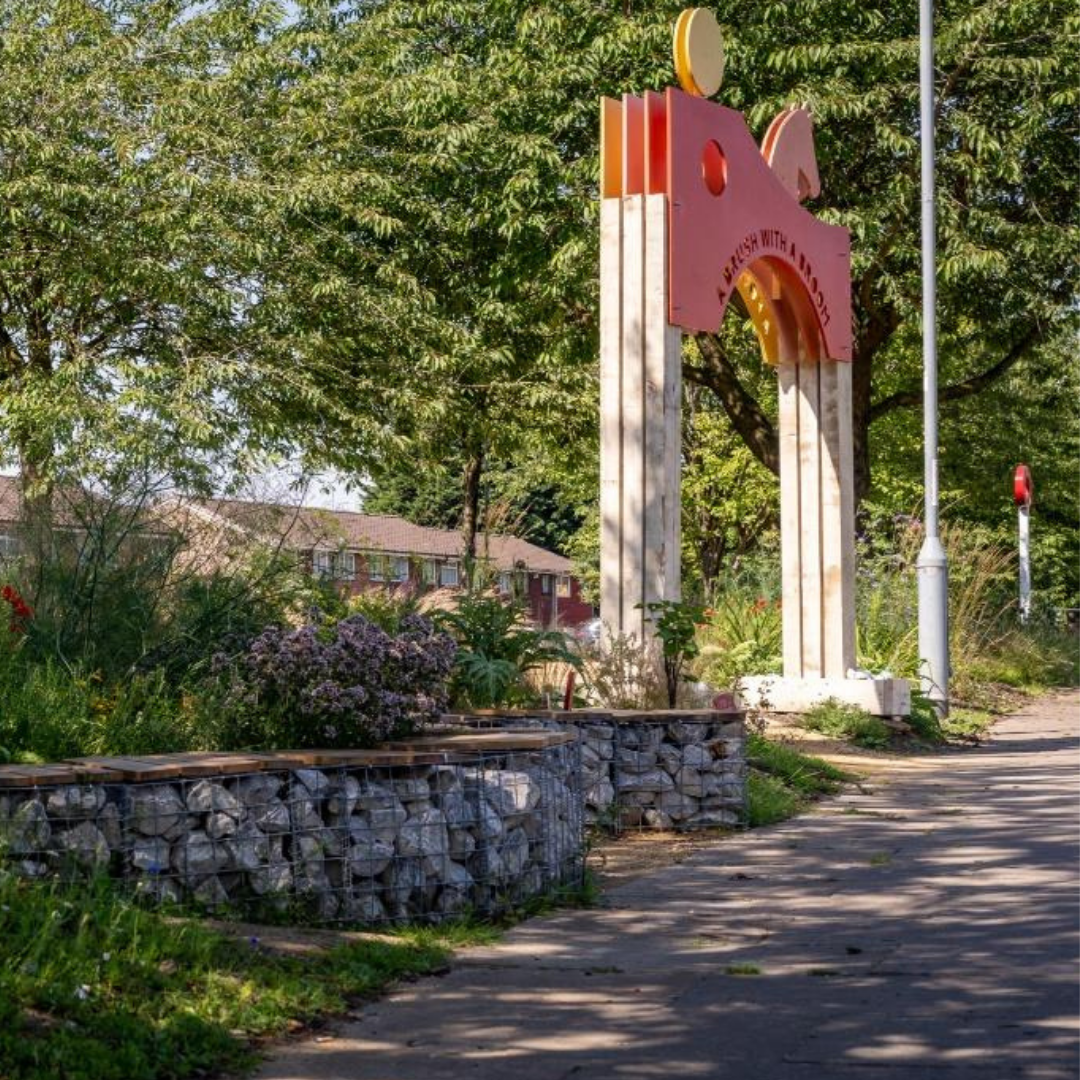
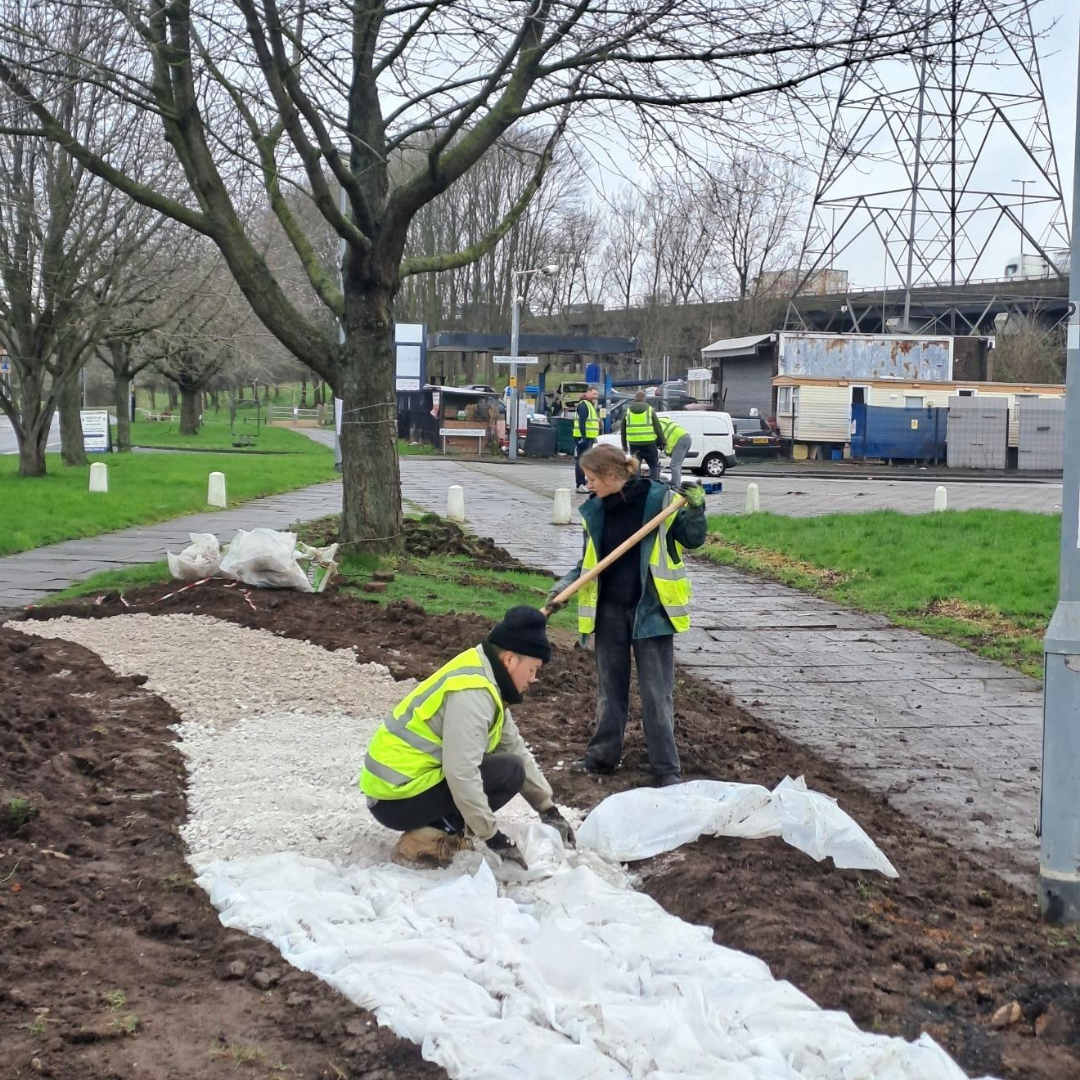
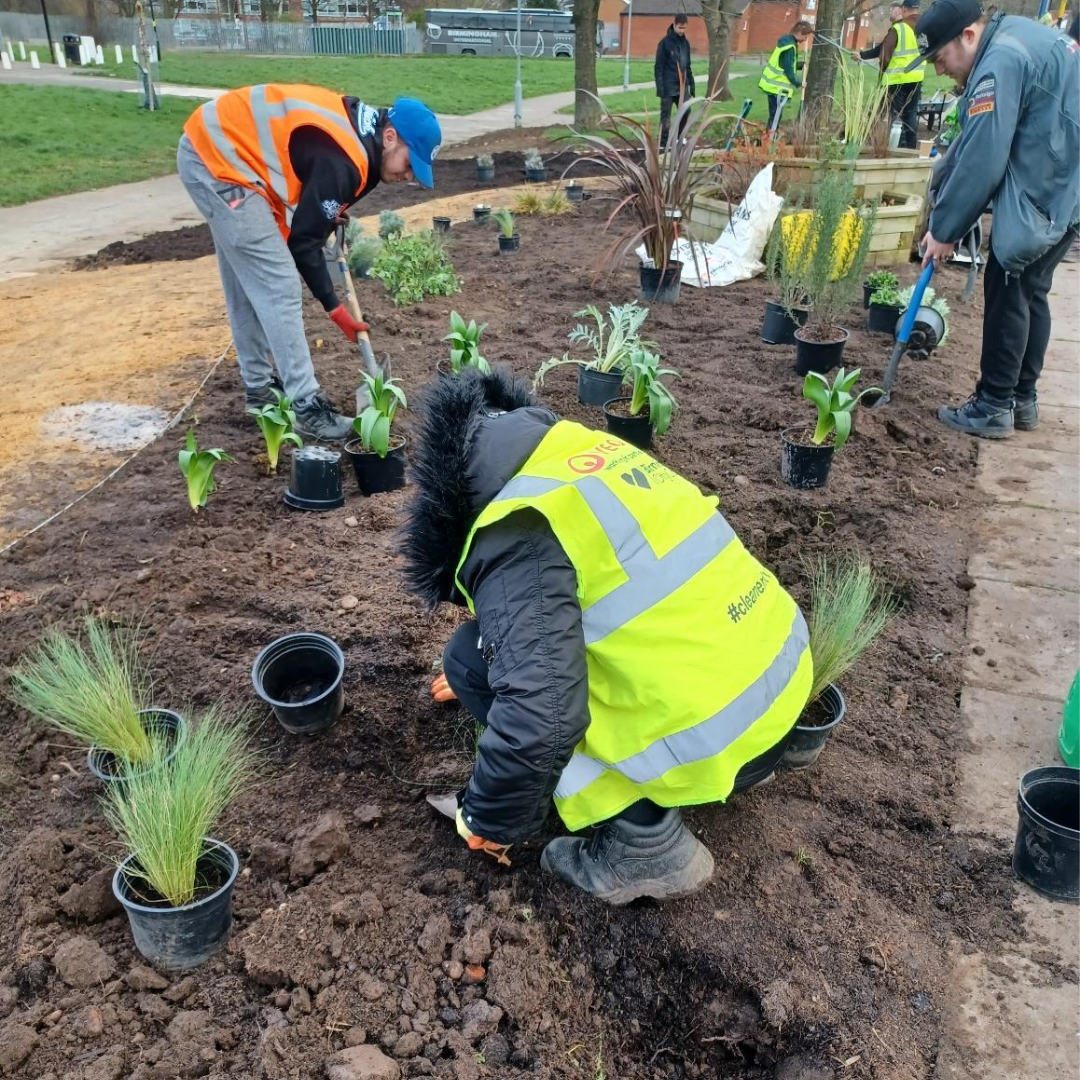
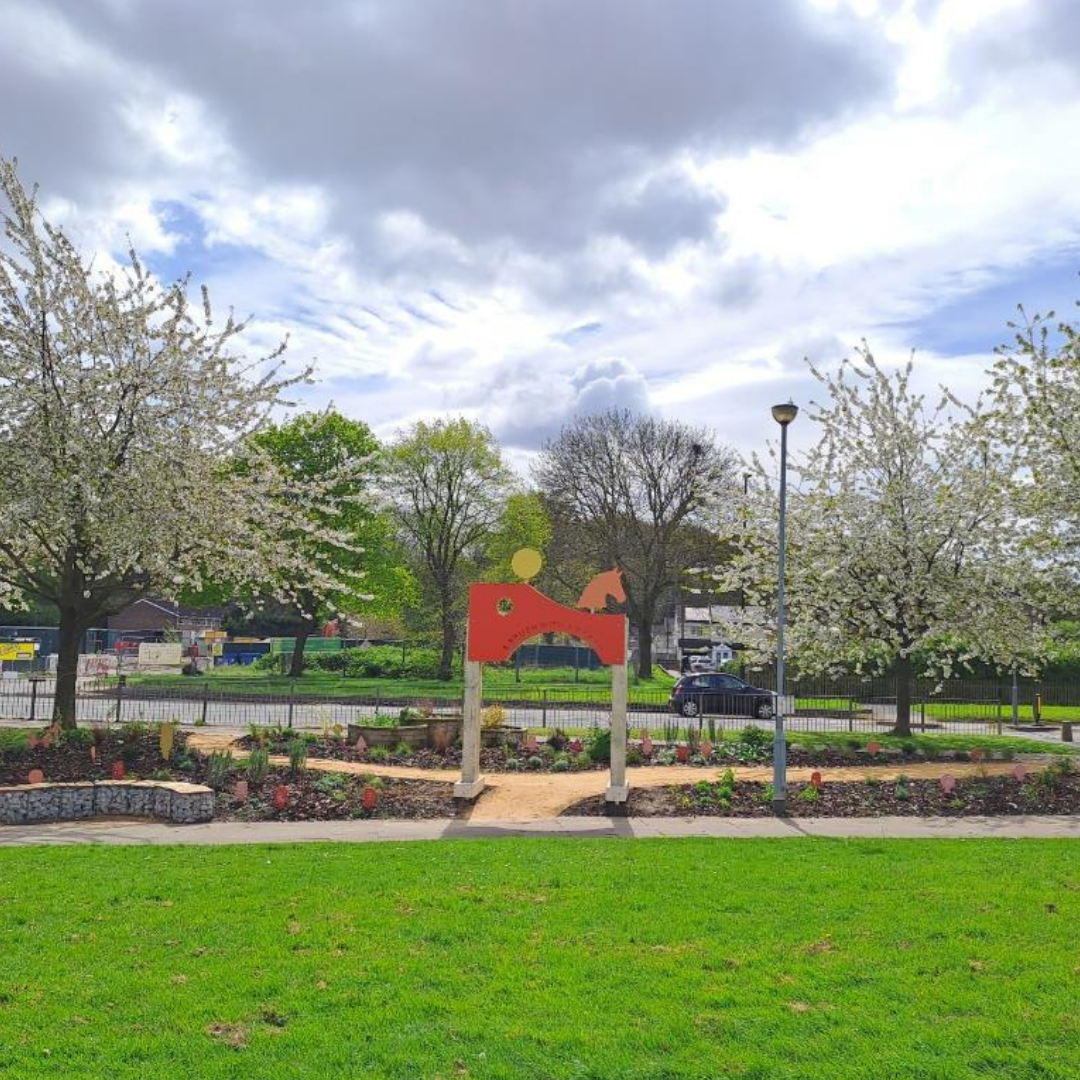
Festival of Pineapples
24-26 February 2026
Pineapples prize giving night
April
Pineapples at Festival of Place
10 June 2026
© The Pineapples - Tweak Ltd. 124 City Road, London, EC1V 2NX. Tel: 020 3326 7238
